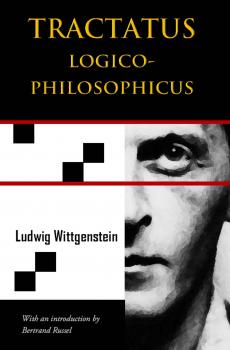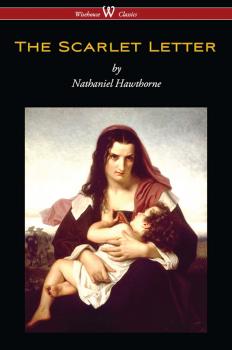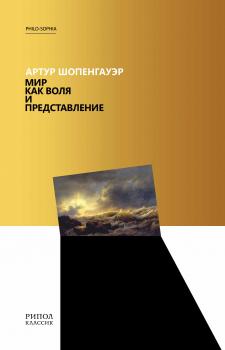Философия
Различные книги в жанре ФилософияTractatus Logico-Philosophicus (Chiron Academic Press - The Original Authoritative Edition)
THE TRACTATUS LOGICO-PHILOSOPHICUS is the only book-length philosophical work published by the Austrian philosopher Ludwig Wittgenstein in his lifetime. The project had a broad aim – to identify the relationship between language and reality and to define the limits of science – and is recognized as a significant philosophical work of the twentieth century. Wittgenstein wrote the notes for the Tractatus while he was a soldier during World War I and completed it when a prisoner of war at Como and later Cassino in August 1918. It was first published in German in 1921 as 'Logisch-Philosophische Abhandlung'. The Tractatus was influential chiefly amongst the logical positivists of the Vienna Circle, such as Rudolf Carnap and Friedrich Waismann. Bertrand Russell's article «The Philosophy of Logical Atomism» is presented as a working out of ideas that he had learned from Wittgenstein. (more on: www.wisehouse-classisc.com)
WALDEN or Life in the Woods (Wisehouse Classics Edition)
WALDEN or, Life in the Woods , by noted transcendentalist Henry David Thoreau, is a reflection upon simple living in natural surroundings. The work is part personal declaration of independence, social experiment, voyage of spiritual discovery, satire, and manual for self-reliance. First published in 1854, it details Thoreau's experiences over the course of two years, two months, and two days in a cabin he built near Walden Pond, amidst woodland owned by his friend and mentor Ralph Waldo Emerson, near Concord, Massachusetts. The book compresses the time into a single calendar year and uses passages of four seasons to symbolize human development. By immersing himself in nature, Thoreau hoped to gain a more objective understanding of society through personal introspection. Simple living and self-sufficiency were Thoreau's other goals, and the whole project was inspired by transcendentalist philosophy, a central theme of the American Romantic Period. As Thoreau made clear in his book, his cabin was not in wilderness but at the edge of town, about two miles (3 km) from his family home. (more on: www.wisehouse-classics.com)
The Meditations of Marcus Aurelius (Wisehouse Classics Edition)
MEDITATIONS (Medieval Greek: Τὰ εἰς ἑαυτόν Ta eis heauton, literally «to himself») is a series of personal writings by Marcus Aurelius, Roman Emperor from 161 to 180 AD, recording his private notes to himself and ideas on Stoic philosophy. Marcus Aurelius wrote the 12 books of the Meditations in Koine Greek as a source for his own guidance and self-improvement. It is possible that large portions of the work were written at Sirmium, where he spent much time planning military campaigns from 170 to 180. Some of it was written while he was positioned at Aquincum on campaign in Pannonia, because internal notes tell us that the first book was written when he was campaigning against the Quadi on the river Granova (modern-day Hron) and the second book was written at Carnuntum. It is unlikely that Marcus Aurelius ever intended the writings to be published and the work has no official title, so «Meditations» is one of several titles commonly assigned to the collection. These writings take the form of quotations varying in length from one sentence to long paragraphs.
The Scarlet Letter (Wisehouse Classics Edition)
THE SCARLET LETTER is an 1850 work of fiction in a historical setting, written by Nathaniel Hawthorne, and is considered to be his best work. Set in 17th-century Puritan Boston, Massachusetts, during the years 1642 to 1649, it tells the story of Hester Prynne, who conceives a daughter through an affair and struggles to create a new life of repentance and dignity. Throughout the book, Hawthorne explores themes of legalism, sin, and guilt. 20th-century writer D. H. Lawrence said that there could not be a more perfect work of the American imagination than The Scarlet Letter. Henry James once said of the novel, «It is beautiful, admirable, extraordinary; it has in the highest degree that merit which I have spoken of as the mark of Hawthorne's best things-an indefinable purity and lightness of conception…One can often return to it; it supports familiarity and has the inexhaustible charm and mystery of great works of art.» The book's immediate and lasting success are due to the way it addresses spiritual and moral issues from a uniquely American standpoint. In 1850, adultery was an extremely risqué subject, but because Hawthorne had the support of the New England literary establishment, it passed easily into the realm of appropriate reading. It has been said that this work represents the height of Hawthorne's literary genius, dense with terse descriptions. It remains relevant for its philosophical and psychological depth, and continues to be read as a classic tale on a universal theme.
THE PRINCE (Wisehouse Classics Edition)
THE PRINCE (Italian: Il Principe) is a 16th-century political treatise by the Italian diplomat and political theorist Niccolò Machiavelli. From correspondence a version appears to have been distributed in 1513, using a Latin title, De Principatibus (About Principalities). However, the printed version was not published until 1532, five years after Machiavelli's death. This was done with the permission of the Medici pope Clement VII, but “long before then, in fact since the first appearance of the Prince in manuscript, controversy had swirled about his writings”. Although it was written as if it were a traditional work in the mirrors for princes style, it is generally agreed that it was especially innovative. This is only partly because it was written in the vernacular Italian rather than Latin, a practice which had become increasingly popular since the publication of Dante's Divine Comedy and other works of Renaissance literature. THE PRINCE is sometimes claimed to be one of the first works of modern philosophy, especially modern political philosophy, in which the effective truth is taken to be more important than any abstract ideal. It was also in direct conflict with the dominant Catholic and scholastic doctrines of the time concerning how to consider politics and ethics. Although it is relatively short, the treatise is the most remembered of Machiavelli's works and the one most responsible for bringing the word “Machiavellian” into usage as a pejorative. It also helped make “Old Nick” an English term for the devil, and even contributed to the modern negative connotations of the words “politics” and “politician” in western countries. In terms of subject matter it overlaps with the much longer Discourses on Livy, which was written a few years later. In its use of near-contemporary Italians as examples of people who perpetrated criminal deeds for politics, another lesser-known work by Machiavelli which THE PRINCE has been compared to is the Life of Castruccio Castracani.
Ultimate Defense
The utter extinction fo mankind by atomic warfare is a horrifying possibility—if not a probability—whether we face it or not. The Ultimate Defense diagnoses this most crucial problem of our generation and presents a practical plan for solving it.The ethical, pan-humanistic presentation of the author not only reveals a logical plan but also a specific plan. Through its strong personal effect upon the reader, each individual becomes aware of his responsibility for the situation and why it is necessary for him to contribute to its solution.Ringing with sincerity, the author's message extracts the very essence, the basic moral core that units all religions and reveals the identical ethics at the heart of all of them.This is no theoretical treatise on ethics, nor does it advocate any cult or creed. Based on a study of comparative religion, it brings into common focus, with burning brightness, the rays of light that emanate from all religions. The result is a central core of truth that shows not only how to prevent annihilation, but even more important, HOW TO LIVE.
Толкования на пророчества Даниила и Апокалипсис Иоанна Богослова
Книга представляет собой современный перевод историко-теологического труда Исаака Ньютона, сопровожденный комментариями, дополнением и критическим разбором.
Мир как воля и представление
«Мир как воля и представление» Артура Шопенгауэра (1788–1860) – самый яркий и доступный философский трактат XIX века, повлиявший на развитие искусства и становление множества новых дисциплин, от психоанализа до изучения виртуальной реальности. Шопенгауэр доказывает, что если в нашем мире господствует причинность, то единственная свобода – свобода образного мышления. Язвительный пессимизм сочетается в трудах Шопенгауэра с поэтической наблюдательностью и новым пониманием достоинства человека. Данное издание дополнено вступительной статьей профессора РГГУ и ВлГУ Александра Маркова.
Дело № 0. Книга мыслей
Книга содержит актуальные размышления автора о человеке, человечестве, Боге, религии, священных писаниях, науке и жизни на основании общей религиозно-научно-практической концепции. Изложенное в книге представляет своеобразное личное авторское видение с учетом традиционных и авторитетных трактовок и толкований. Цель размышлений, изложенных в книге, – уяснить, что же человек имеет в этой жизни на самом деле.









